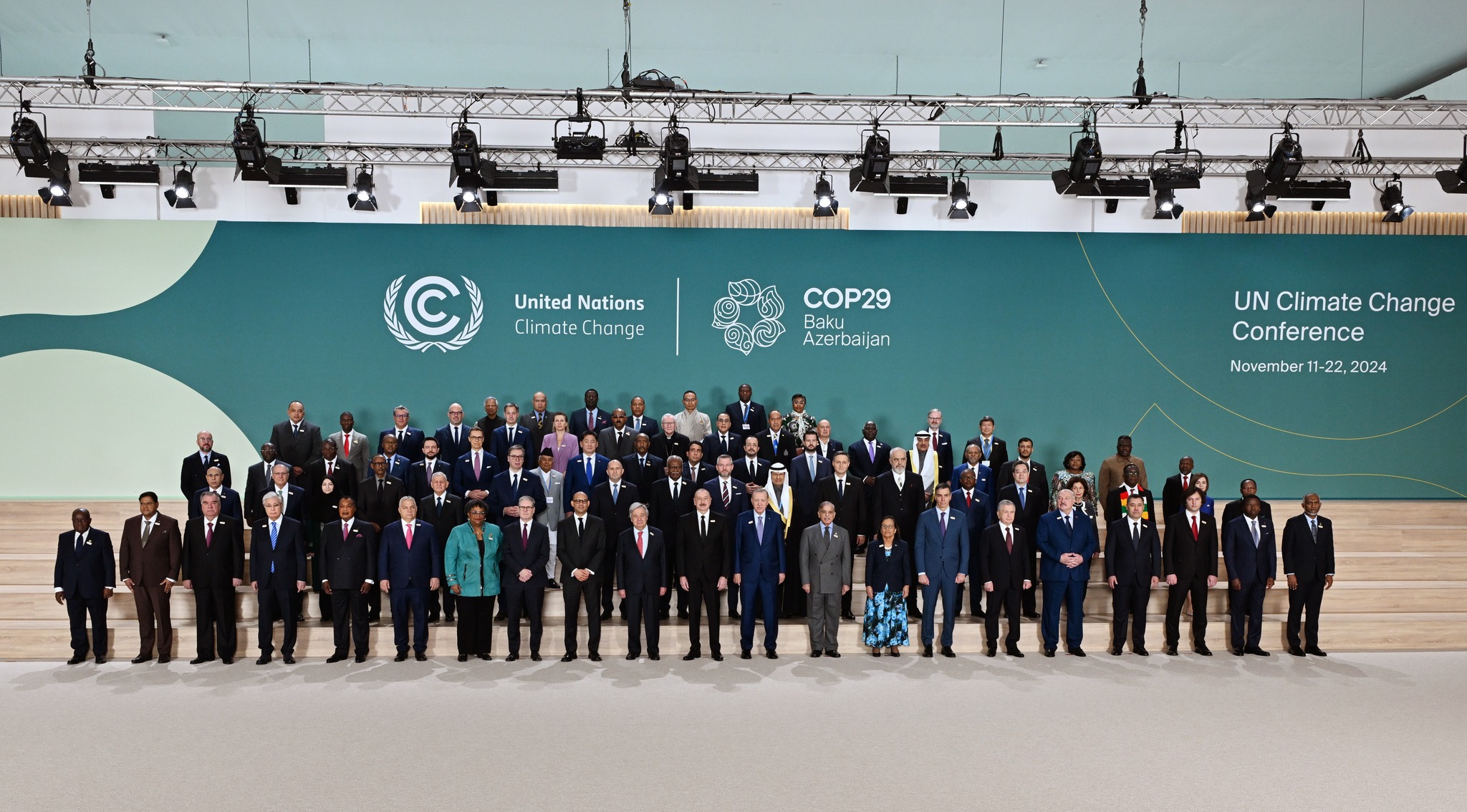Environment & Nature
As COP 29 gets underway, cryosphere scientists warn of ice loss and rising risks
Eye on the Arctic, RCI

FILE: Standing together, in solidarity for a green world. (Photo: COP29 Azerbaijan/Facebook)
Accelerated loss of ice across the planet is driving unprecedented risks to the global economy and climate, more than 50 cryosphere scientists said in report released this week as the COP 29 conference got under way in Baku, Azerbaijan.
The drastic changes we are seeing in the cryosphere while mountain and downstream regions all over the planet are suffering floods, droughts, and landslides provide the most compelling arguments we could have for immediate climate action,
Regine Hock, a glaciologist and IPCC author, said in a statement on Tuesday.
The cryosphere can’t wait. It must be put at the top of the global climate agenda.
The State of the Cryosphere Report 2024,
coordinated by the International Cryosphere Climate Initiative (ICCI), warns that rising temperatures are causing severe damage to polar ice sheets, glaciers, and permafrost — many of which are now at or near irreversible tipping points.
Key findings include record-high ice loss in the European Alps and a dramatic decline in snowpacks in the Hindu Kush Himalayas, threatening water supplies for billions of people. Loss of sea ice in both the Arctic and Antarctic is further exacerbating the situation, reducing the planet’s natural cooling effect and accelerating warming.
The paper also said that if current climate trends continue, the world is on track for a rise in global temperatures of 3°C or more — something that would have devastating effects on sea levels, water resources, and ecosystems worldwide with consequences for billions of people.
Arctic, Antarctic concerns
The paper outlines how ice sheet melt at the two poles will have dire impacts on things sea-level rise.
The Greenland Ice Sheet is currently losing 30 million tons of ice per hour, something I never thought I would see in my lifetime,
Rob DeConto, an IPCC scientist, said.
But Antarctica represents the real long-term threat. If climate pledges are not taken seriously, we could see sea levels rise much faster than we think.
The scientists also warned that the melting of ice sheets could disrupt important ocean currents, potentially bringing colder temperatures to northern Europe and increasing sea-level rise along the U.S. East Coast. In addition, thawing permafrost is releasing carbon at a faster rate than it can be absorbed, further amplifying global warming.
Despite international pledges to reduce emissions, the report notes that atmospheric CO2 levels have continued to rise, exceeding 428 parts per million in 2024. The scientists warn that this trend will push global temperatures to at least 3°C above pre-industrial levels by the end of the century, a scenario that would push the planet past several key tipping points in the cryosphere, with devastating long-term consequences.
The scientists also warned that the melting of ice sheets could disrupt important ocean currents, potentially bringing colder temperatures to northern Europe and increasing sea-level rise along the U.S. East Coast. In addition, thawing permafrost is releasing carbon at a faster rate than it can be absorbed, further amplifying global warming.
Without urgent climate action, it will be impossible for coastal cities and regions to adapt in time,
James Kirkham, chief scientist for the Ambition on Melting Ice (AMI) group.
“We are not talking about the distant future: the impacts of cryosphere loss are already being felt by millions. But the speed of action we take today decides the size and speed of the challenge to which future generations will need to adapt.”
The release of the report comes as world leaders gather in Baku for COP29, where countries are expected to update their climate pledges ahead of the UN’s 2025 climate talks.
The report’s scientists are urging leaders to prioritize cryosphere impacts in their discussions, calling for immediate reductions in emissions to avoid the worst-case scenarios outlined in the report.
Policymakers cannot afford to ignore the spreading global damage from a warming cryosphere,
ICCI Director Pam Pearson said.
To save the cryosphere is to save ourselves.
This article is republished from RCI.





















